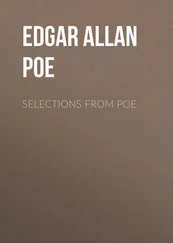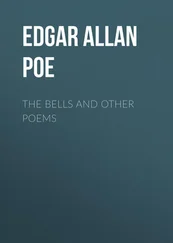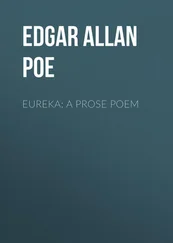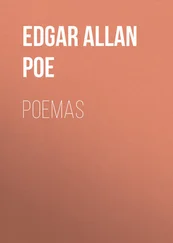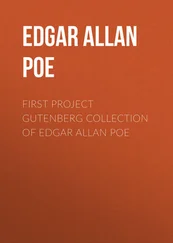Edgar Poe - CRITICISM
Здесь есть возможность читать онлайн «Edgar Poe - CRITICISM» весь текст электронной книги совершенно бесплатно (целиком полную версию без сокращений). В некоторых случаях можно слушать аудио, скачать через торрент в формате fb2 и присутствует краткое содержание. Жанр: на английском языке. Описание произведения, (предисловие) а так же отзывы посетителей доступны на портале библиотеки ЛибКат.
- Название:CRITICISM
- Автор:
- Жанр:
- Год:неизвестен
- ISBN:нет данных
- Рейтинг книги:3 / 5. Голосов: 1
-
Избранное:Добавить в избранное
- Отзывы:
-
Ваша оценка:
- 60
- 1
- 2
- 3
- 4
- 5
CRITICISM: краткое содержание, описание и аннотация
Предлагаем к чтению аннотацию, описание, краткое содержание или предисловие (зависит от того, что написал сам автор книги «CRITICISM»). Если вы не нашли необходимую информацию о книге — напишите в комментариях, мы постараемся отыскать её.
CRITICISM — читать онлайн бесплатно полную книгу (весь текст) целиком
Ниже представлен текст книги, разбитый по страницам. Система сохранения места последней прочитанной страницы, позволяет с удобством читать онлайн бесплатно книгу «CRITICISM», без необходимости каждый раз заново искать на чём Вы остановились. Поставьте закладку, и сможете в любой момент перейти на страницу, на которой закончили чтение.
Интервал:
Закладка:
Still sternly o'er the castle gate
Thy house's Lion stands in state,
As in his proud departed hours;
And warriors frown in stone on high,
And feudal banners "flout the sky"
Above thy princely towers.
The second stanza, without evincing in any measure the loftier powers of a poet, has that quiet air of grace, both in thought and expression, which seems to be the prevailing feature of the Muse of Halleck.
A gentle hill its side inclines,
Lovely in England's fadeless green,
To meet the quiet stream which winds
Through this romantic scene
As silently and sweetly still,
As when, at evening, on that hill,
While summer's wind blew soft and low,
Seated by gallant Hotspur's side
His Katherine was a happy bride
A thousand years ago.
There are one or two brief passages in the poem evincing a degree of rich imagination not elsewhere perceptible throughout the book. For example Gaze on the Abbey's ruined pile:
Does not the succoring Ivy keeping,
Her watch around it seem to smile
As o'er a lov'd one sleeping? and,
One solitary turret gray
Still tells in melancholy glory
The legend of the Cheviot day.
The commencement of the fourth stanza is of the highest order of Poetry, and partakes, in a happy manner, of that quaintness of expression so effective an adjunct to Ideality, when employed by the Shelleys, the Coleridges and the Tennysons, but so frequently debased, and rendered ridiculous, by the herd of brainless imitators.
Wild roses by the abbey towers
Are gay in their young bud and bloom:
They were born of a race of funeral flowers,
That garlanded in long-gone hours,
A Templar's knightly tomb.
The tone employed in the concluding portions of Alnwick Castle, is, we sincerely think, reprehensible, and unworthy of Halleck. No true poet can unite in any manner the low burlesque with the ideal, and not be conscious of incongruity and of a profanation. Such verses as
Men in the coal and cattle line
From Tevoit's bard and hero land,
From royal Berwick's beach of sand,
From Wooler, Morpeth, Hexham, and
Newcastle upon Tyne. may lay claim to oddity- but no more. These things are the defects and not the beauties of Don Juan. They are totally out of keeping with the graceful and delicate manner of the initial portions of Alnwick Castle, and serve no better purpose than to deprive the entire poem of all unity of effect. If a poet must be farcical, let him be just that, and nothing else. To be drolly sentimental is bad enough, as we have just seen in certain passages of the Culprit Fay, but to be sentimentally droll is a thing intolerable to men, and Gods, and columns.
Marco Bozzaris appears to have much lyrical without any high order of ideal beauty. Force is its prevailing character- a force, however, consisting more in a well ordered and sonorous arrangement of this metre, and a judicious disposal of what may be called the circumstances of the poem, than in the true material of lyric vigor. We are introduced, first, to the Turk who dreams, at midnight, in his guarded tent, of the hour
When Greece her knee in suppliance bent,
Should tremble at his power He is represented as revelling in the visions of ambition.
In dreams through camp and court he bore
The trophies of a conqueror;
In dreams his song of triumph heard;
Then wore his monarch's signet ring;
Then pressed that monarch's throne- a king;
As wild his thoughts and gay of wing
As Eden's garden bird.
In direct contrast to this we have Bozzaris watchful in the forest, and ranging his band of Suliotes on the ground, and amid the memories of Plataea. An hour elapses, and the Turk awakes from his visions of false glory- to die. But Bozzaris dies- to awake. He dies in the flush of victory to awake, in death, to an ultimate certainty of Freedom. Then follows an invocation to death. His terrors under ordinary circumstances are contrasted with the glories of the dissolution of Bozzaris, in which the approach of the Destroyer is welcome as the cry
That told the Indian isles were nigh
To the world-seeking Genoese,
When the land-wind from woods of palm,
And orange groves and fields of balm,
Blew o'er the Haytian seas.
The poem closes with the poetical apotheosis of Marco Bozzaris as
One of the few, the immortal names
That are not born to die.
It will be seen that these arrangements of the subject are skillfully contrived- perhaps they are a little too evident, and we are enabled too readily by the perusal of one passage, to anticipate the succeeding. The rhythm is highly artificial. The stanzas are well adapted for vigorous expression- the fifth will afford a just specimen of the versification of the whole poem.
Come to the bridal Chamber, Death!
Come to the mother's when she feels
For the first time her first born's breath;
Come when the blessed seals
That close the pestilence are broke,
And crowded cities wail its stroke,
Come in consumption's ghastly form,
The earthquake shock, the ocean storm;
Come when the heart beats high and warm,
With banquet song and dance, and wine;
And thou art terrible- the tear,
The groan, the knell, the pall, the bier,
And all we know, or dream, or fear
Of agony, are thine.
Granting, however, to Marco Bozzaris, the minor excellences we have pointed out we should be doing our conscience great wrong in calling it, upon the whole, any more than a very ordinary matter. It is surpassed, even as a lyric, by a multitude of foreign and by many American compositions of a similar character. To Ideality it has few pretensions, and the finest portion of the poem is probably to be found in the verses we have quoted elsewhere Thy grasp is welcome as the hand
Of brother in a foreign land,
Thy summons welcome as the cry
That told the Indian isles were nigh
To the world-seeking Genoese,
When the land-wind from woods of palm
And orange groves, and fields of balm
Blew o'er the Haytian seas.
The verses entitled Burns consist of thirty-eight quatrains- the three first lines of each quatrain being of four feet, the fourth of three. This poem has many of the traits of Alnwick Castle, and bears also a strong resemblance to some of the writings of Wordsworth. Its chief merits, and indeed the chief merit, so we think, of all the poems of Halleck is the merit of expression. In the brief extracts from Burns which follow, our readers will recognize the peculiar character of which we speak.
Wild Rose of Alloway! my thanks:
Thou mind'st me of that autumn noon
When first we met upon "the banks
And braes o'bonny Doon" Like thine, beneath the thorn-tree's bough,
My sunny hour was glad and brief We've crossed the winter sea, and thou
Art withered-flower and leaf,
There have been loftier themes than his,
And longer scrolls and louder lyres
And lays lit up with Poesy's
Purer and holier fires.
And when he breathes his master-lay
Of Alloways witch-haunted wall
All passions in our frames of clay
Come thronging at his call.
Such graves as his are pilgrim-shrines,
Shrines to no code or creed confined The Delphian vales, the Palastines,
The Meccas of the mind.
They linger by the Doon's low trees,
And pastoral Nith, and wooded Ayr,
And round thy Sepulchres, Dumfries!
The Poet's tomb is there. Wyoming is composed of nine Spenserian stanzas. With some unusual excellences, it has some of the worst faults of Halleck. The lines which follow are of great beauty.
I then but dreamed: thou art before me now,
In life- a vision of the brain no more,
I've stood upon the wooded mountain's brow,
Читать дальшеИнтервал:
Закладка:
Похожие книги на «CRITICISM»
Представляем Вашему вниманию похожие книги на «CRITICISM» списком для выбора. Мы отобрали схожую по названию и смыслу литературу в надежде предоставить читателям больше вариантов отыскать новые, интересные, ещё непрочитанные произведения.
Обсуждение, отзывы о книге «CRITICISM» и просто собственные мнения читателей. Оставьте ваши комментарии, напишите, что Вы думаете о произведении, его смысле или главных героях. Укажите что конкретно понравилось, а что нет, и почему Вы так считаете.


